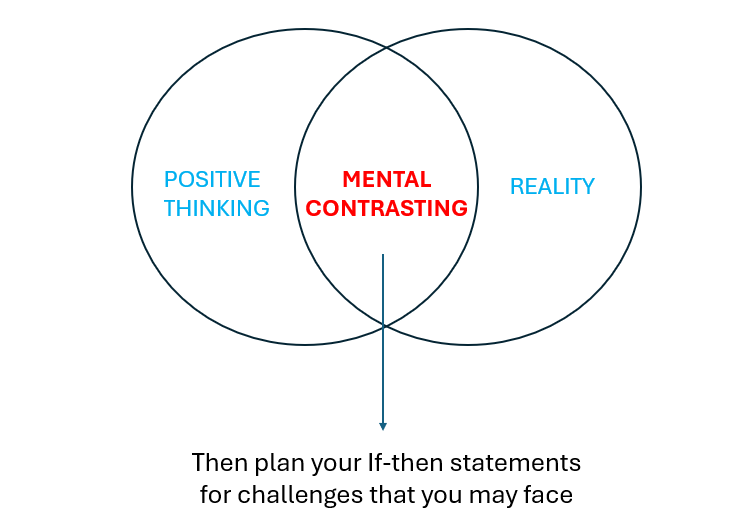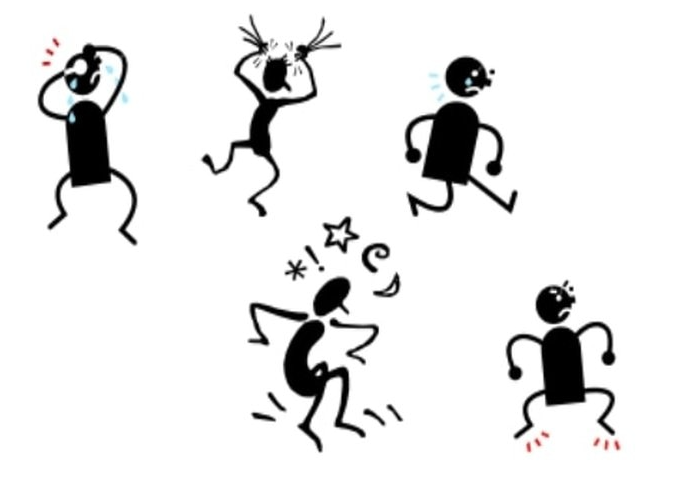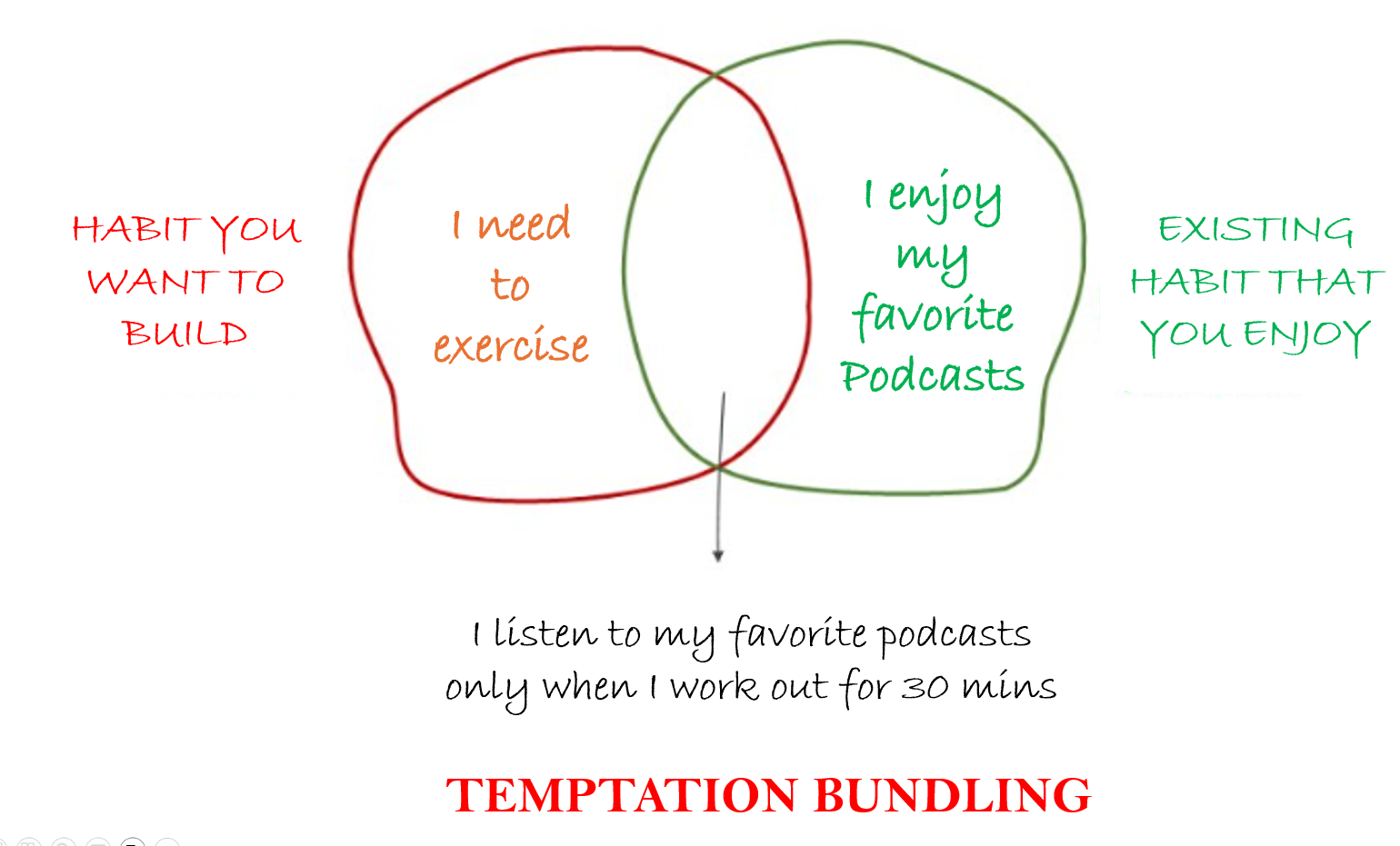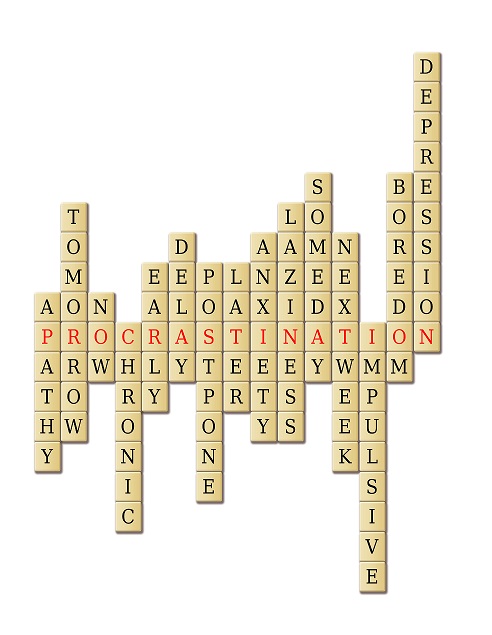- Home
- 7 Steps of Goal Setting
- 7 Ways to Overcome Procrastination with Purpose
7 Ways to Overcome Procrastination with Clarity of Purpose
Procrastinators often feel about themselves because they have let themselves or others down. In a poignant piece of research on the impact of procrastination, when posed the question, "To what extent is procrastination having a negative impact on your happiness?" of the 2700 responses, 46% said quite a bit or very much. And 18% confessed it was an extremely negative effect. Here I want to provide you with 7 ways to overcome procrastination by increasing your clarity of purpose.
Clarity of purpose is a powerful antidote to overcome procrastination!
Why?
Because clarity of purpose aligns present action with future goals. Lets dive a littler deeper on the purpose and procrastination link
How Purpose beats Procrastination
When I work with clients who lack purpose, it is easier for them to be busy doing trivial actions rather than the one action they SHOULD be doing.

As Mike (not his real name) , a client of mine, said recently, "When I have a strong sense of purpose, it feels like an internal compass that guides my decisions and actions towards a meaningful outcome. I find with a clarity of purpose, I can overcome temporary short-term discomfort of the challenging task that I was procrastinating on because I understand its significance in the larger narrative of my life."
This response echos Nietzsche: "He who has a why to live can bear almost any how."
Research backs up Mike and Nietzche, as individuals who have a clarity of purpose have greater resilience and are better able to overcome procrastination because their actions align with their core values and long-term goals. When you look at why people procrastinate, it is clear that procrastination is an emotional regulation problem. When we are confronted by that big, scary or boring task, we are confronted with a bunch of negative emotions (i.e. a fear of failure, boredom, anxiety, frustration), and so we look to dodge the discomfort of these negative emotions.
A clarity of purpose can help you to push through these negative emotions! How?
By the simple act of connecting your present actions to meaningful future outcomes.
7 Ways to Overcome Procrastination with a Clarity of Purpose
If I were to ask the average person on the street the question, "What is clarity of purpose?" they would likely reply that it is about a grand goal or lofty, noble ambition. It isn't just about this, but it can help :)
Clarity of purpose is understanding the "why" behind your daily actions. When you have a compelling "why" and can clearly articulate why that task is significant to you and your overall life and goals, then you are more likely to push through and do the task rather than postpone it.
Strategy #1: Value Alignment Exercise
Step 1. What are your core values? My suggestion is to choose no more than five core values to focus on. If everything is a core value, then nothing is really a priority.
Step 2. Consider the thing you procrastinate on and evaluate how this task aligns/connects with your specific core value. The more able you are to connect this task to your core value, the more you can develop a compelling 'why' that helps to make procrastination less appealing.
For example, I was working with a client who had a very busy work schedule and was procrastinating on exercising (30 mins of running 3 days a week). We did some core value work in which he identified the core value of health as one of his top values because it enabled him to have more energy for his three young children. He considered how exercising aligned with his core value of health. What he found was that when he saw how the actions of exercise supported his commitment to good health, he was more able to follow through on these actions rather than procrastinate on them.
Note: tracking progress works really well with Strategy #7 below on accountability partnerships.
Strategy #2. Visualize your Future Self
Procrastinators often have some common characteristics. They are good at overlooking the immediate consequences of their avoidance and focusing on the temporary relief that procrastination brings. - which, of course, positively reinforces the procrastination habit.
Because of this, procrastinators often don't give full weight to the future stress and self-disdain that procrastination will inevitably cause. Nor do they fully appreciate the future benefit of completing the task.
Visualizing your future self helps the procrastinator appreciate fully the future benefit of completing the task. It does this by painting a vivid picture of the completed task you make the future benefits more immediate. Here are some examples that my clients have used.
- Procrastination on cleaning the house - visualizing the future self, Maggie imagined walking into a clean house and the comfort of not feeling ashamed when a guest arrives.
- Procrastination on going for a run - visualizing the future self, Sarah imagined the joy of getting up the stairs without panting and playing ball with her children.,
- Procrastination on what somebody has asked me to do - visualizing the future self, John imagined the smile on their face as you tell them you’ve done it and the feeling of going to the movies with a clear conscience.
This visualization exercise works well when you ask yourself what is the next step you can take to make this happen. To do this, consider trying this 10-minute activity.
Strategy #3. Craft a Clarity of Purpose Statement
A purpose statement provides clarity. Clarity of life direction and clarity of those things that bring meaning to you. The key is for a purpose statement to be concise.
When it is concise, regularly review and update it so that it remains relevant to you. I like to put my clarity of purpose statement in a visible spot that keeps me focused on what matters.
For example, I am a university lecturer in psychology and I value education and personal growth. The purpose statement on the wall of my campus office is "To inspire and educate students and to foster a love of learning and personal development."
I also regularly review and align this with my daily activities. For example, activities such as subject development and lesson planning align with my purpose, and this keeps me motivated and focused on my goals (even though I have been teaching psychology for many years).
Strategy #4: Connecting Task and Purpose
The key here is to ask before starting a significant task, "How does this task connect to my purpose?" . The more clearly you can do this the more likely you can increase motivation and reduce procrastination.
For example, James (not his real name) was a local business owner. While developing a marketing plan was important to his business he could think of about a million other activities that were more enticing and gratifying. So, this important task was something he procrastinated on.
I asked him, "How does creating a new marketing strategy connect to your purpose of growing your business and providing the best value to your customers?"
The aim here was to better connect the task (developing a marketing strategy) with purpose - and by doing so, James could see how this important task would bring him one step closer to his purpose.
Strategy #5: Tracking Progress
If you want to find a way to create a positive feedback look that keeps you on track - then tracking progress is something you want to do. I remember when I had to write my PhD, and I was procrastinating on the write-up - which was going to take about three months to do. I used The Seinfeld Strategy - also known as "Don't Break the Chain" to focus on the process rather than the outcome. Here's how it worked for me and my goal of writing
Step 1: Set a goal. Here, you decide the habit you want to build. For me, it was to write for 1 hour per day, every day for 3 months.
Step 2: Get a wall calendar. I used a calendar that showed the entire year at a glance
Step 3: Mark your progress: When I completed my daily writing session of 1 hour, I marked it in a big red "X" on that day's date
Step 4: Don't break the chain: My goal was to keep the X's going without any gaps. I noticed the longer my streak, the more motivated I was to continue.
Strategy #6. Consider your Environmental Design
When doing challenging tasks that can be procrastinated on, while a sense of purpose helps, it is easy to be sidetracked by competing demands or other more trivial tasks that are full of bells and whistles.
Here, I am talking about distractions that can be amplified by technology. I have used these four different techniques to intentionally support your purpose-driven activities.
Strategy #7: Accountability Partnerships
Find people who have the same interests as you. When you find people who have the same interest, and you check in regularly, they become accountability partners.
I remember after the birth of our third child, I was trying to get back into exercise (running for 30 minutes). Running was something I seemed to enjoy but with sleep deprivation and always something else to do that was more gratifying I never got a chance to run.
So, I joined a local running group and connected with other runners online. The idea here is that I would be able to meet with like-minded individuals who loved running. I was a bit sceptical of this, as running had always been a solitary experience for me, but I found that sharing progress and hearing others' challenges and how they overcame them became a social support.
By finding people of similar interest and checking in regularly with them I felt I had started to develop a sense of community that kept me motivated and accountable - which meant I was less likely to procrastinate on going for a run.
These strategies are not meant to be a silver bullet to beat procrastination overnight. Rather, they are about building a sustainable approach to purposeful action. The idea here is that each step towards purposeful action is a step away from procrastination.















New! Comments
Have your say about what you just read! Leave me a comment in the box below.